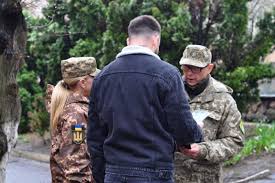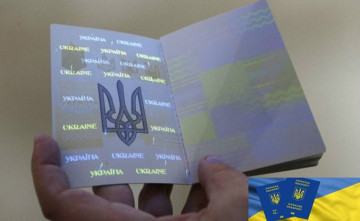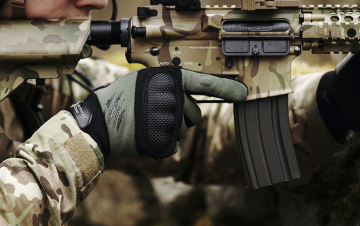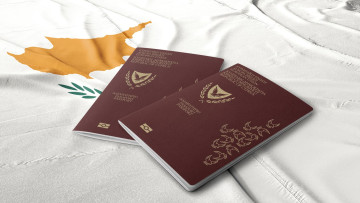WHAT DOCUMENTS TO REQUEST FROM THE TCC EMPLOYEE - LEGAL ASSISTANCE
It is a well-known fact that every Ukrainian during the period of martial law is obliged to carry documents confirming his identity. However, not everyone knows that the employees of the TCC and SP, who serve summonses to conscripts, must also carry relevant documents and present them on demand.
Documents that are required to be carried by TCC employees serving summonses
At the request of a conscript who is served with a summons, the authorized person is obliged to present the following documents:
- service card or document confirming her belonging to the unit specified in the commandant's order;
- a copy of the commandant's order, which specifies the units that have the right to check documents;
- as well as justify the basis for checking documents.
Authorized persons with the right to serve a summons
According to Ukrainian legislation, a summons can be served:
- representatives of local self-government bodies,
- heads of enterprises, institutions, organizations and educational institutions (regardless of their form of ownership or subordination),
- managers of apartment buildings,
- officials of district or city staffing and social support centers (military commissariats).
Documents that police officers must have
According to Clause 5 of Resolution of the CMU No. 1456, police officers and employees of the TCC, when checking documents upon request, must present the order of the commandant, which indicates the name of the person conducting the check.
According to Part 3 of Art. 18 of the Law of Ukraine "On the National Police", a police officer, when contacting a citizen to check documents, is obliged to:
- inform your name, position and rank;
- present badge and service card;
- upon request, provide a copy of the commandant's order and familiarize with the information.
He is not obliged to hand over the certificate, but only to hold it for inspection.
Questions
Can a conscript request a copy of the commandant's order?
Answer
Yes, the TCC employee must provide a copy of the commandant's order at your request. If you are denied this or if you have doubts about the legality of the actions, it is recommended to immediately consult a lawyer.
Questions
Is it possible to refuse to provide documents if the TCC employee does not show his documents?
Answer
You have the right not to provide your documents if the TCC employee refuses to show them. To avoid legal consequences and properly protect your rights, it is better to seek legal help.
Questions
Can other persons serve summonses?
Answer
Subpoenas can also be served by local self-government representatives and other authorized persons. If you are not sure of the legality of their actions, a lawyer will help you find out all the details and represent your interests.
Legal aid during wartime
In wartime, it is important to know your rights when communicating with employees of territorial recruitment and social support centers (TCC). You have the right to ask them for an official ID, a copy of the commandant's order confirming their authority to check documents, as well as the basis for this check. If the TCC representative refuses to provide these documents or you feel that your rights are being violated, it is important to seek legal help. A lawyer will be able to prepare you for communication with TCC representatives and protect your interests if necessary. Don't forget to bring proof of identity with you, as it is a legal requirement to verify your identity.
Military Lawyer Online
In times of war, access to legal aid becomes critical, especially in matters related to military service and conscription. A military lawyer online can become a reliable assistant, providing quick and effective consultations on mobilization, the rights of military personnel, procedures for obtaining deferrals and challenging the actions of TCC representatives. Online consultations allow you to get professional help without having to leave your home, which is important in the conditions of martial law. The lawyer will also help prepare documents, appeals and complaints, providing recommendations on actions in conflict situations. Don't delay important issues - seek legal help to protect your rights during war.
Consultation of a lawyer in Kyiv
If you are faced with a situation where an employee of the Territorial Procurement Center (TCC) is trying to serve you with a summons or check your documents, it is important to know what documents you can and should request from this person.
First, the TCC employee is required to provide you with his official ID, which confirms his status and authority.
Secondly, a copy of the commandant's order must be presented, which states that a specific employee has the right to carry out such actions.
It is also important that he indicates the reason for checking your documents.
If you have doubts about the legality of the actions of a TCC employee or need help in resolving the situation, consult a lawyer in Kyiv. A legal expert will help you protect your rights and tell you how to act in this situation to avoid trouble.
How to order the services of a military law lawyer in Kyiv
- Online ordering: Fill out the form on our website, specify the services you need, and we will respond quickly.
- Telephone consultation: Call us at +380637375800 and our specialists will be happy to answer all your questions.
- Personal visit: We invite you to visit our office in Kyiv at the address of st. Mechnikova, 2 (BC Parus). We will be glad to see you!
In a situation where employees of the territorial recruitment and social support centers (TCC) try to check your documents or serve a summons, it is important to know your rights and responsibilities. You have the right to demand from them a service card, a copy of the commandant's order and grounds for checking your documents. In case of refusal or doubts about the legality of their actions, it is strongly recommended to seek legal help. Qualified military law lawyers in Kyiv can provide the necessary consultations, protect your interests and help in the preparation of documents to resolve conflict situations. Do not postpone important issues - seek legal support to effectively protect your rights during war.



































